2012 - 2013
Words of gratitude are extended to Erica DeDell of Olivia’s Corner who provided us permission to use the image which accompanies this year’s series.
More of her work can be found here.
2012-2013 Religious Life Lecture Series
FAITHFUL PASSAGES
THE DOOR OF FAITH
In his moto proprio of 17 October 2011 “The Door of Faith,” Pope Benedict XVI invited the Church to celebrate the fiftieth anniversary of the opening of the Second Vatican Council by calling for a “Year of Faith” beginning 11 October 2012 and concluding with the Feast of Christ the King on 24 November 2013.
While the letter is directed primarily at members of the Catholic Church, the call to live from and out of one’s faith is necessary for all.
In his letter, the Holy Father writes, “…there is no other possibility for possessing certitude with regard to one's life apart from self-abandonment, in a continuous crescendo, into the hands of a love that seems to grow constantly because it has its origin in God". In the same letter he continues,
"On the other hand, we must not forget that in our cultural context, very many people, while not claiming to have the gift of faith, are nevertheless sincerely searching for the ultimate meaning and definitive truth of their lives and of the world. This search is an authentic 'preamble' to the faith, because it guides people onto the path that leads to the mystery of God. Human reason, in fact, bears within itself a demand for 'what is perennially valid and lasting'. This demand constitutes a permanent summons, indelibly written into the human heart, to set out to find the One Whom we would not be seeking had He not already set out to meet us. “
Join us as we welcome artists, authors, preachers, theologians and activists who share with us the place of faith in their lives and how it calls us all to the betterment of the human family and the whole of the cosmos.
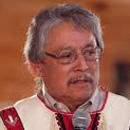 Thursday, September 27, 2012
Thursday, September 27, 2012
7:30PM in Elizabeth A. "Bessie" Labatt Hall
(King's University College, London)
Dave Courchene
Nii Aki Innini - Leading Earth Man
Anishnabe Nation, Eagle Clan
Winnipeg Manitoba
The Legacy of Indigenous People in Canada: The Seven Teachings and the Igniting of the 8th Fire
This lecture will offer a traditional Indigenous perspective on the way of life of an ancient people who define themselves in terms of their relationship with the land – “deeply rooted in love for the land”; how Indigenous people of America evolved in close connection with the land, how the land gives a people definition on how one should live and behave, following “Natural Laws”; the struggle and challenges faced by Indigenous people of America; the importance and significance of “Sacred Sites” not only for Indigenous people but for all citizens of the world; the “Seven Sacred Laws” and connection to Spirit and Nature, which have constituted the foundation of the Indigenous way of life.
Nii Gaani Aki Innini – is the Leading Earth Man, of the Anishnabe Nation, Eagle Clan, and Turtle Lodge. He has travelled extensively, carrying a message of hope and peace. He shares ancient Indigenous knowledge that he believes can act as a foundation in supporting the New Life that Mother Earth is now entering, and that Elders have confirmed has arrived.
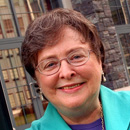 Thursday, November 15, 2012
Thursday, November 15, 2012
7:30PM in Elizabeth A. "Bessie" Labatt Hall
(King's University College, London)
Elizabeth A. Johnson, CSJ, PhD
Distinguished Professor of Theology
Fordham University, New York
A Faith that Loves the Earth
In this age of ecological stress, theology is rediscovering the natural world as a subject of religious value. God created the heavens and the earth and saw it was good; joined the earth in the flesh of Jesus Christ, who died and was raised to new life; dwells within all living things in the Spirit; and promises the whole world a blessed future. This lecture traces how a faith traditionally centered on human beings is growing to include the natural world in the definition of the dear "neighbor" we are to love as ourselves.
Biography:
Sister Johnson teaches in both undergraduate and graduate programs. After receiving a Ph.D. in theology from Catholic University of America (1981), she taught at that university before moving to Fordham. A former president of the Catholic Theological Society of America, and a former president of the American Theological Society, she loves to teach and was awarded Fordham University’s Teaching Award in 1998 and Professor of the Year Award in 2011. She is currently researching Darwin’s idea of evolution in relation to the doctrine of creation so as to make care of the earth an inescapable part of Christian life.
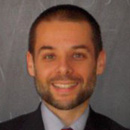 Thursday, December 13, 2012
Thursday, December 13, 2012
7:30PM in "The Chapel" at Revera's Windermere on the Mount
(1486 Richmond Street North, London)
Massimo Faggioli, PhD
Assistant Professor of History of Modern Christianity
University of St. Thomas, St. Paul, Minnesota
Vatican II: The Battle for Meaning
This lecture will address the history of the debate on Vatican II. The first phase (1960-1965) was Vatican II receiving itself, the second phase (1965-1980, the council received and acknowledged vs. rejected by the Lefebvrites), the third phase (1980-1990, the council enforced), and the fourth phase (1990-2000, Vatican II historicized).
The second part of the talk will focus on the core issues in the interpretation of the council today: the council as the beginning or the renewal; the intertextual dynamic of the council text; change and historicity in theology and in the Church. The talk will try to offer some hints about the "clash of narratives" about Vatican II and to restore the council in its historical and theological dimension.
Biography:
Dr. Faggioli worked in the “John XXIII Foundation for Religious Studies” in Bologna between 1996 and 2008 and received his PhD. from the University of Turin in 2002. He is a member of the research network “The Lived History of Vatican II” of the University of Notre Dame, and recently, was awarded the first “Peter R. D’Agostino Research Travel Grant.” He writes regularly for Italian newspapers and journals on the Church, religion and politics, gives public lectures on the Church and on Vatican II, and is co-chair of the new study group “Vatican II Studies” for the “American Academy of Religion.” In September 2012 Liturgical Press published his newest book, “True Reform. Liturgy and Ecclesiology in Sacrosanctum Concilium.” He is presently working at book on the history of Church government after Vatican II.
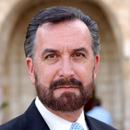 Thursday, February 28, 2013
Thursday, February 28, 2013
7:30PM in Elizabeth A. "Bessie" Labatt Hall
(King's University College, London)
Rabbi David Rosen
Director of Interreligious Affairs, Heilbrunn Institute for International Interreligious Understanding
Jerusalem, Israel
Faith in daily action – revealing the inner world of Jewish orthopraxy
While Faith in Divine fidelity has enabled the Jewish people to survive the vicissitudes of history, Judaism as a way of life has been described as "God intoxicated" and "faith saturated". Yet there is no formal catechism in Judaism; and neither the "Shema” nor the first of the Decalogue are actually injunctions "to believe" but rather are descriptive of the Deity. Above all they are connected to practical commandments. In traditional Judaism, practice is both the expression and the path to faith, rather than the product of it. In order to understand the Faith of Judaism one has to comprehend the content and import of its praxis.
Biography:
Rabbi Rosen is the International Director of Interreligious Affairs for the American Jewish Committee and its Heilbrunn Institute for International Understanding. He is Honorary Advisor on Interfaith Relations to the Chief Rabbinate of Israel: serves on its Commission for Interreligious Dialogue, and represents the Chief Rabbinate on the Council of Religious Institutions of the Holy Land. He is an International President of Religions for Peace; Honorary President of the International Council of Christians and Jews; and serves on the Executive of the World Council of Religious Leaders; and is a member of the Elijah Institute’s World Board of Religious Leaders. He is a founder of the Interreligious Coordinating Council in Israel that embraces some seventy organizations in Israel involved in interfaith relations.
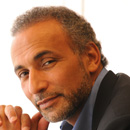 Thursday, March 14, 2012
Thursday, March 14, 2012
7:30PM in Centennial Hall
(550 Wellington Street, London)
Tariq Ramadan, PhD
Professor of Contemporary Islamic Studies
Oxford University
Oxford, United Kingdom
Believing in One Truth in a Pluralistic Society
Whether we are Christian or Buddhist, Jewish or Muslim, secularist or believer, Tariq Ramadan suggests that all traditions of thought spring from the same place, and guides us to see past what divides us and discover the beauty of what we have in common. In his lecture Professor Ramadan will outline the approach to pluralism presented in his book "The Quest for Meaning: Developing a Philosophy of Pluralism," a searching analysis of the challenges involved in creating pluralist societies and an insightful assessment of areas of common ground, which have the potential to bring out the best in one another and become a force for good within the world.
Biography:
Professor Tariq Ramadan holds an MA in Philosophy and French literature and a PhD in Arabic and Islamic Studies from the University of Geneva. In Cairo, Egypt he received one-on-one intensive training in classic Islamic scholarship from Al-Azhar University scholars. Through his writings and lectures he has contributed substantially to the debate on contemporary Islamic issues, Islamic revival in the world and Muslims in the West. He is active both at the academic land grassroots levels lecturing extensively throughout the world on theology, Islamic law and jurisprudence, applied ethics, philosophy, social justice, economy, politics, interfaith and intracommunity dialogue.
"The Religious Life Lecture Series is grateful for the support received from the Centre for Jewish-Catholic-Muslim-Learning for the lectures offered by David Rosen and Tariq Ramadan."
